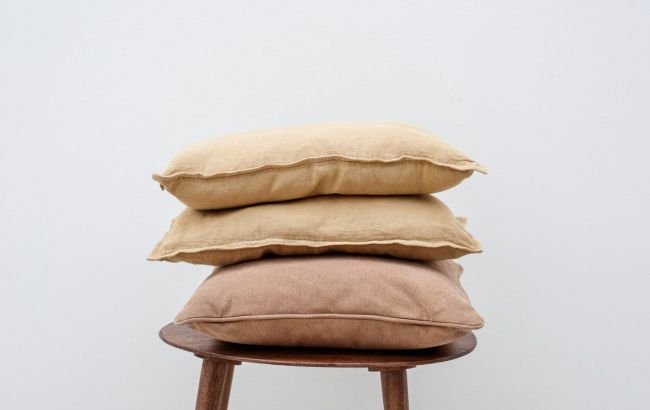Worsening allergies: 4 signs it's time to replace your pillows
 When to replace pillows (illustration: Freepik)
When to replace pillows (illustration: Freepik)
A soft pillow is essential for a good night's sleep. However, over time, regular use and washing can cause pillows to lose their shape, making them less comfortable for sleeping - not just because of their shape. So, it's necessary to replace pillows from time to time.
Martha Stewart tells about when it's time to replace your pillow.
Why you need to change pillows and how often
The general recommendation for replacing pillows is every two years. In some cases, depending on the manufacturer's recommendations, pillows may need to be replaced sooner.
As noted by Kenneth Mendez, President of the American Asthma and Allergy Foundation, this is because over two years of use, about 10 percent, and sometimes more, of a pillow's weight can be made up of dead dust mites and the results of their activities.
Dust mites are tiny insects that can live almost anywhere in the home, especially on fabric-covered items. Besides triggering allergies, they can also increase the body's reaction to other allergens.
When to replace pillows
In addition to using time as an indicator, there are additional signs that indicate it's time to replace your pillows.
Pillows have discolored
Over time, pillows can become discolored from frequent use. Color change indicates a buildup of sweat, oils, and dead skin cells.
This can create a favorable environment for the growth of bacteria and allergens, compromising the hygiene of the pillow and potentially affecting health.
Pillows have lost their shape
A pillow that has lost its shape no longer provides adequate support for the neck and head during sleep. This can lead to discomfort, neck pain, and worsened sleep quality.
There's a way to check if a pillow retains its shape enough: fold the pillow in half, if it doesn't regain its original shape, it's time to replace it.
Pillows smell unpleasant
A pillow that smells unpleasant even after washing is recommended to be replaced as soon as possible. According to the American Asthma and Allergy Foundation, an unpleasant odor may be a sign of mold - especially if you sleep on a pillow with damp hair.
Some people are allergic to certain types of mold, but inhaling it poses a health risk even for people who are not allergic.
Allergy symptoms have appeared or worsened
If allergy symptoms appear or worsen overnight or after sleeping on a pillow, it may indicate that the pillow has collected allergens triggering such a reaction.
You can try washing the pillow first, but if the symptoms persist after washing, it's time to consider replacing it.

